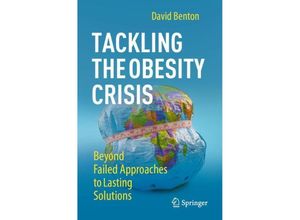The obesity epidemic reflects a failure to understand how meals are chosen. Government
initiatives have failed and most people are unable to control their weight. In this book an
internationally recognized expert on diet and behaviour discusses the common misunderstandings
that have created the epidemic and suggests how obesity could be reduced. After dieting the
body needs fewer calories and you are likely to put on weight. Many people do not understand
how to control their weight and rely on ideas that are simply wrong. Natural foods are seen as
healthier when they are not. Ultra-processed foods are seen as a problem when the method of
production is unimportant. There is little evidence that removing sugar from the diet banning
advertising to children adding calories to menus or providing nutritional information on
packaging reduces obesity. In fact removing fat from the diethas increased obesity. One
conclusion is that current approaches have no chance of preventing obesity. Without new ways of
dealing with obesity it will inevitably increase reducing life expectancy after decades of
disease. So what needs to change? One root cause of obesity is poverty. The way infants are
fed in the first years of life determines the likelihood of obesity in adulthood. Without the
development of low-calorie foods little can be done. Since health policy depends on
individuals changing their behaviour they need to understand how to control their weight.
Ambitious in scope the author deals with the topic in an eye-catching and easy to understand
manner illustrated with colourful analogies and unusual and amusing facts. A refreshing novel
perspective is offered that will be of interest to everyone wishing to control their body
weight.



